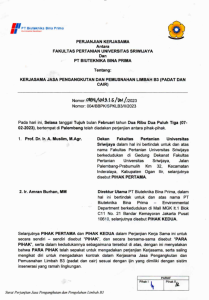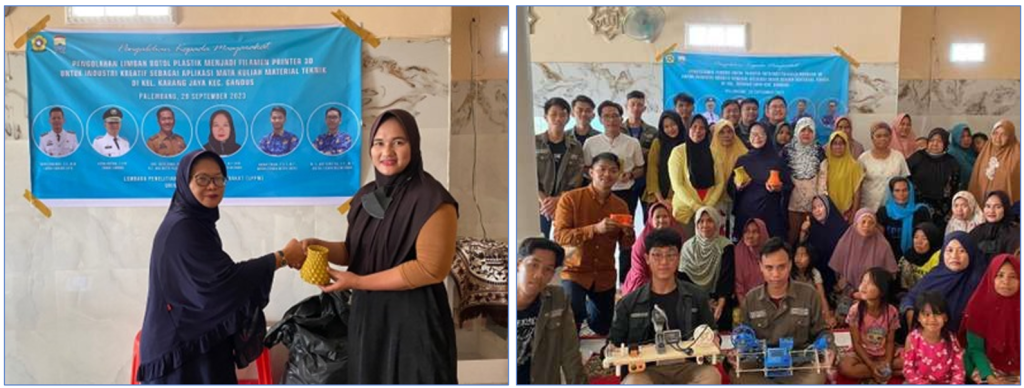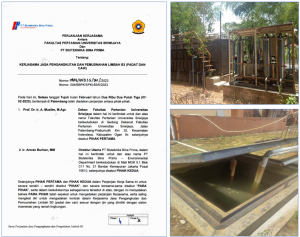
SDG 14 – Indicator 14.4.1 – Water discharge guidelines and standards
UNSRI Cooperates with Third Party in Handling Hazardous Toxic Waste
Hazardous Toxic Waste (Bahan Beracun Berbahaya, “B3”) is waste that contains toxic and hazardous substances that can interfere with health, damage the environment, and threaten the survival of humans and other organisms. In handling hazardous toxic waste, Universitas Sriwijaya (UNSRI) collaborates with PT Biuteknika Bina Prima. This cooperation activity contains a contract in cooperation for transportation services and destruction of hazardous toxic waste in the form of solid and liquid waste in accordance with the permits owned with an environmentally friendly incineration system. This cooperation is carried out in an effort to support the government in preserving the sustainability, health, and safety of the environment and humans.

Link:
SDG 14 – Indicator 14.4.2 – Action plan to reducing plastic waste
UNSRI has Recycled Bottles to Reduce Plastic Waste
Waste is a threat to human life and the environment. One type of waste that has a significant impact on the environment is plastic waste. This is because the amount of plastic waste continues to increase and is difficult to decompose. One common type of plastic waste is plastic bottles. In reducing the amount of plastic bottle waste, Universitas Sriwijaya (UNSRI) is trying to do several things, such as using refillable bottles for drinking water within the UNSRI campus and managing plastic waste to keep certain items. For example, the UNSRI Service Team has utilised plastic bottle waste into 3D printer filaments. These actions taken are expected to reduce plastic waste on-campus and off-campus.

Link:
SDG 14 – Indicator 14.4.3 – Reducing marine pollution (policy)
Providing Trash Bins and Hazardous Waste Treatment to Prevent Marine Pollution
Marine pollution is an event that occurs due to the entry of chemicals, particles, and waste from human activities in various sectors, including in campus areas. Universitas Sriwijaya (UNSRI) is one of the higher education institutions located in South Sumatra Province. South Sumatra Province is home to the Musi River, which flows into the sea. In order to prevent marine pollution, UNSRI has implemented several policies related to this, such as providing trash bins on campus and processing hazardous waste before it is disposed of into the environment. Regarding hazardous waste, UNSRI has also partnered with third parties in managing this waste.

Link:
